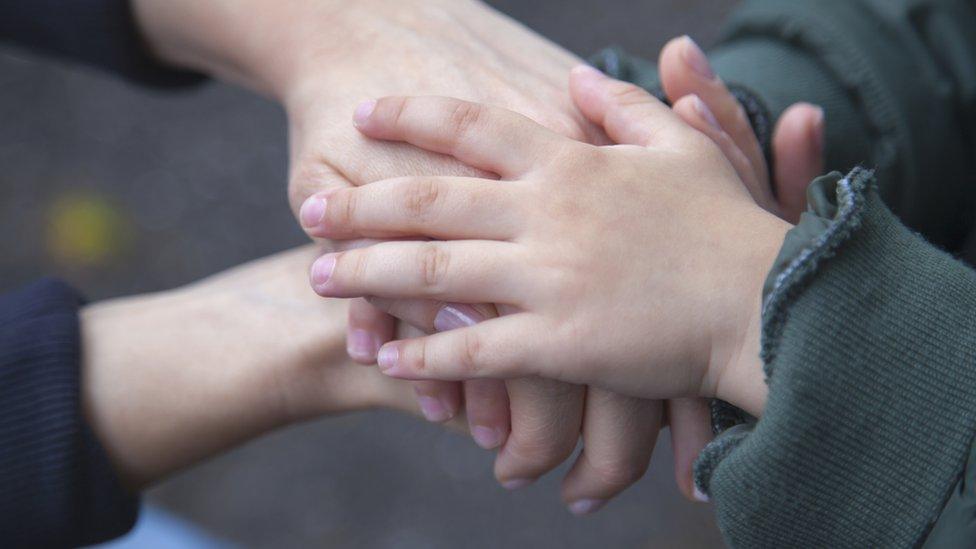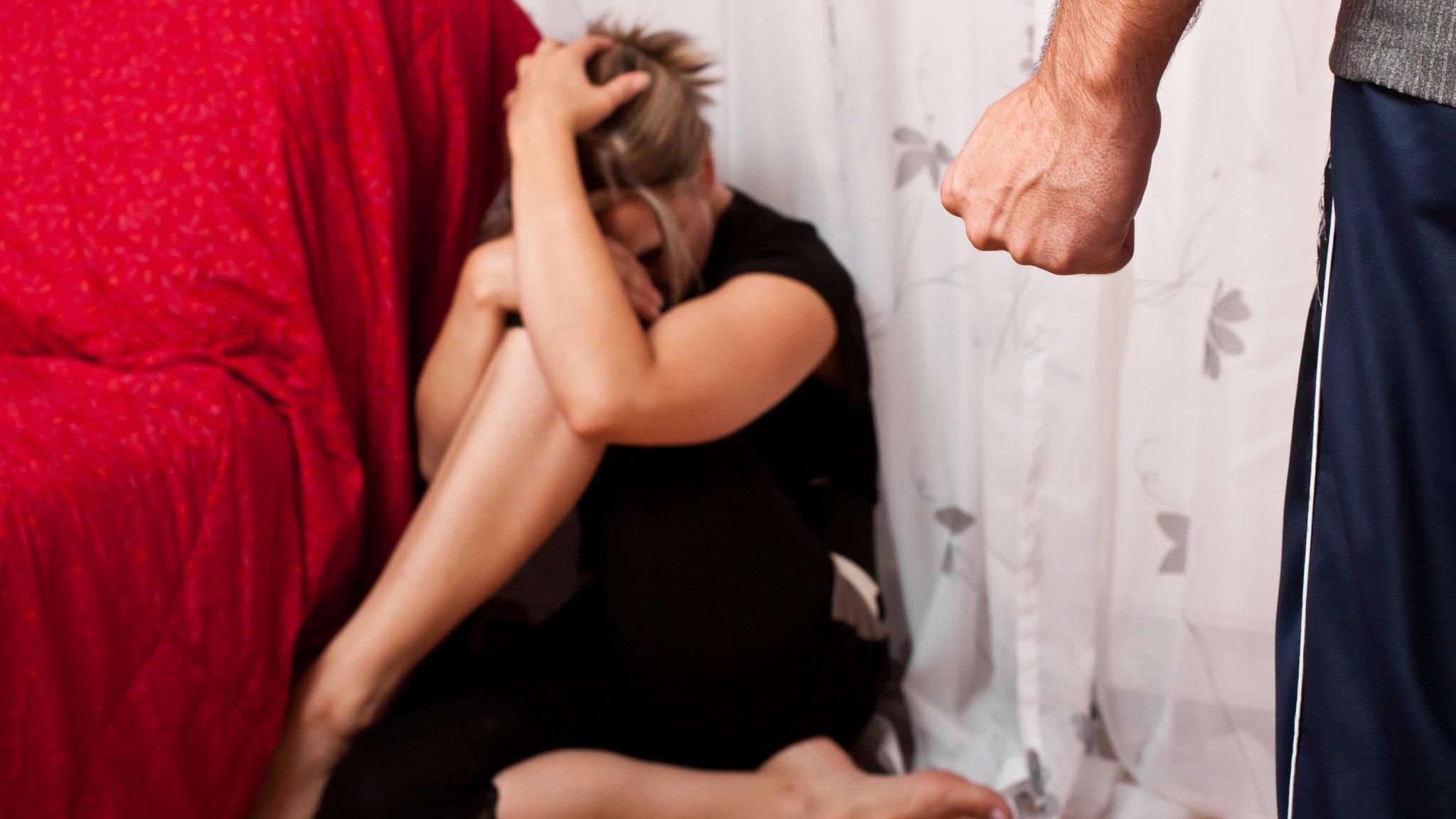Counselling domestic abusers cuts offending by third, say researchers
- Published
Chantal Hughes of The Hampton Trust and Katie Ghosh of Women's Aid
A radical counselling scheme for some domestic abusers cuts offending by a third, researchers say.
The two-day course was more successful than other attempts to change behaviour, said Cambridge University.
It places first-time offenders in group discussions in which they talk about their behaviour and anger management.
The Crown Prosecution Service says it is waiting for results from other trials before any decision on nationwide approval.
Criminologists from the university studied what happened to almost 300 men arrested by Hampshire Police for first-time offences linked to domestic abuse, such as common assault, criminal damage or threatening behaviour.
None of the men arrested from 2012 onwards had a previous record of violence.
Around half received a conditional caution for a first offence - meaning they would be prosecuted for both the original and new offence if they broke the law again within four months.
The rest were asked to attend a Cautions and Relationship Abuse (Cara) workshop - two five-hour group sessions which were held a month apart.
In each session, between four and seven men met a counsellor in a hotel selected to persuade them to relax and and talk about themselves.
The aim was to persuade the men to acknowledge what had gone wrong in their lives - but, using motivational techniques, leave them with a plan and feeling they could change for the better.
When the team analysed what happened, external over the following year, they found that 35% fewer men reoffended compared with the standard group.
The researchers also looked at the crimes committed by each man who did reoffend - and found they were at a lower level than might otherwise have been the case.
The reoffenders caused 27% less harm than the men who did not attend sessions - a calculation reached using a radical new way of assessing the true cost of crime, external to victims and society.

Posed by models

How can an abuser be changed by 'positive goals'? "Andy" tells his story:
"Andy", like many on the course, had alcohol problems, and was unable to deal with any kind of conflict with his partner without resorting to abuse.
Initially, he was reluctant to do the session - but now says it had a lasting effect on his attitude to his wife and the way he deals with domestic arguments.
In particular, he says, the personalised "time out" plan that men develop while on the scheme has really helped.
It helped him recognise early-warning signals that he was about to become abusive and needed to remove himself from the situation - the programme suggests for about an hour.
The men devise strategies and activities to calm themselves and work out how to return to the family home calmly after the time-out.
"If I'm honest, she shouts a lot less now as I don't get drunk. You know I kept commenting I shouldn't be here, but realise I need to take positives away.
"When you are made to do something you reflect.
"I'm the one who needs to change with the drink and walk away when getting annoyed and calm down with a 'time-out'.
"My wife read that time-out sheet and said she felt it had made a difference.
"She said we were both stressed before I came to the first session and when I came back from it, I apologised to her - so it must have made a difference."

Heather Strang, professor of criminology at Cambridge University, said: "I embarked on this evaluation with very little expectation that it would be successful, but what we found is the potential to make a difference.
"It has been extraordinarily successful.
"No other programme to our knowledge now has such strong evidence of yielding a substantial reduction in harm to victims of domestic abuse."
The team estimated that for every 1,000 first-time offenders who go through the scheme, there would be 380 fewer assaults.
The Crown Prosecution Service's current guidance says that domestic abuse or hate crime offences are not generally suitable for a conditional caution scheme - and a spokesman said it was awaiting the outcome of other trials.
"Alongside the Ministry of Justice and police we have been working on trialling the use of conditional cautions for domestic abuse in four areas - Hampshire, along with another pilot covering Staffordshire, Leicestershire and West Yorkshire," said the spokesman.
"We welcome the publication of the Project Cara findings but will take account of evidence from all these areas before deciding if any changes to our guidance are appropriate."
Hampshire Assistant Chief Constable Scott Chilton, who co-authored the Cambridge report, said: "For decades, police have been told to arrest and prosecute.
"But I think that first and foremost our aim has got to be to get a better service to the victim.
"They often want the offender to get help because they are in a relationship, they have families together or they have a job."
- Published11 May 2017

- Published5 April 2017

- Published18 February 2017
